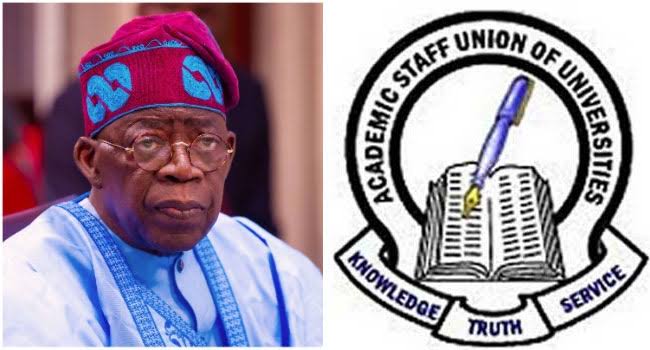ASUU has threatened nationwide strike over stalled renegotiation and FG inaction.
NewsOnline Nigeria reports that the Academic Staff Union of Universities (ASUU) has expressed deep frustration over the Federal Government’s failure to take concrete steps in resolving longstanding issues affecting university lecturers and the education sector.
Speaking in an interview with PUNCH Online in Jos on Sunday, ASUU President, Professor Chris Piwuna, said the union has grown weary of repeated promises without meaningful action, particularly regarding the stalled renegotiation of the 2009 agreement.
ALSO: Soldier Allegedly Stabs Amotekun Officer To Death in Osun State
“We are tired of words and promises,” Piwuna declared. “Our demands are clear—conditions of service, university autonomy, academic freedom, sustainable funding, and earned academic allowances. After seven years of negotiations, it’s time for the government to act. We either have an agreement or we don’t.”
Piwuna lamented the persistent decay in university infrastructure, staff demoralisation, rising cultism, and the general decline in academic standards—challenges he said could be effectively addressed through adequate funding and better remuneration for academic staff.
“We believe that the infrastructural decay, demoralised staff, cultism, and poor quality of education in our universities can best be addressed through increased funding and improved remuneration,” he noted.
He also stressed the importance of including non-teaching staff in any salary review process to ensure stability and harmony in the university system. “Let me be clear: non-teaching staff of the university should be carried along as our salaries are reviewed. It will promote harmony and stabilise the system,” he said.
Warning of potential repercussions, the ASUU president cautioned the government to brace for the consequences of continued inaction. “In the days and weeks ahead, the government should be ready to accept whatever they see,” he warned.
With no resolution in sight, the ongoing impasse raises fresh concerns about the future of university education in Nigeria.
